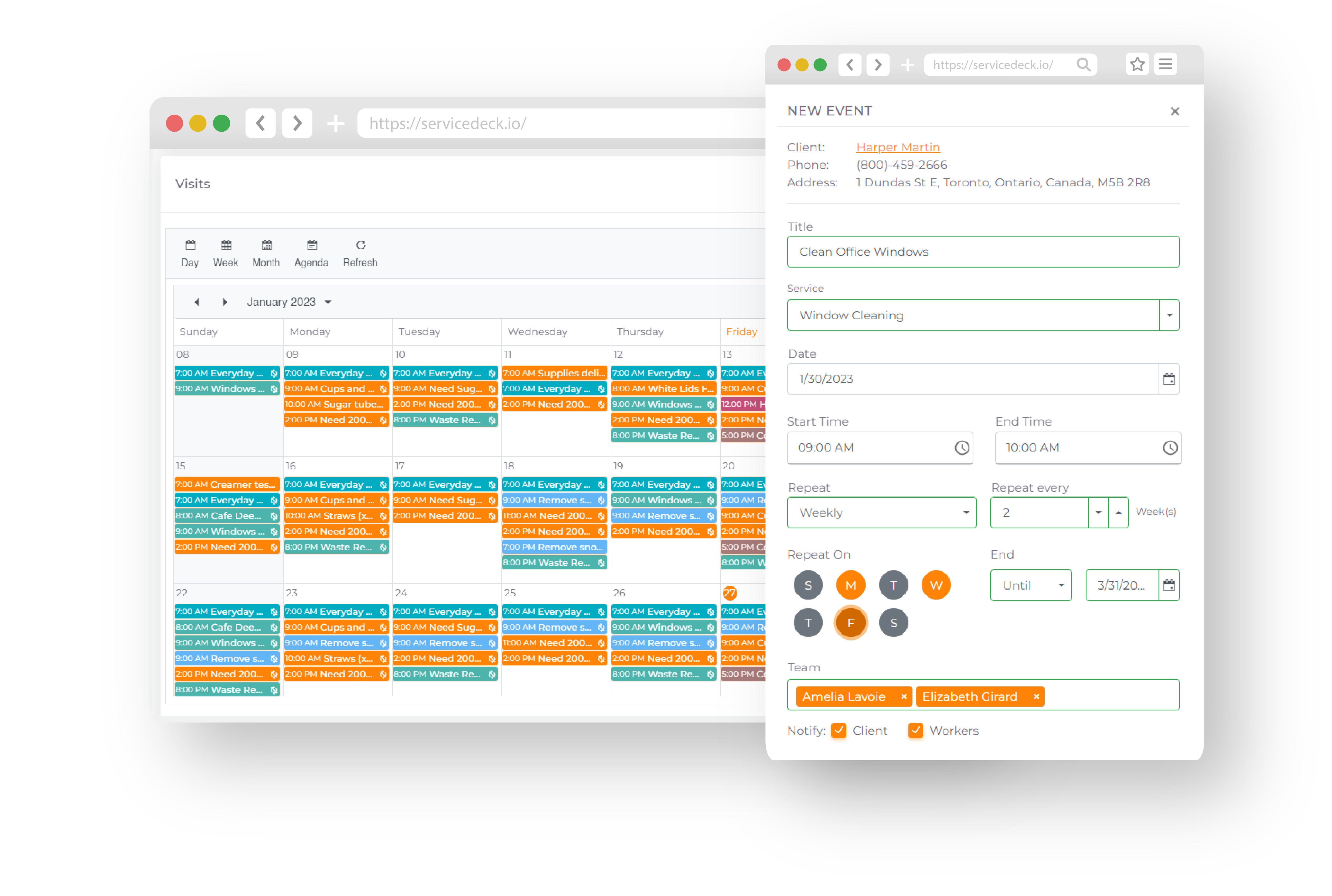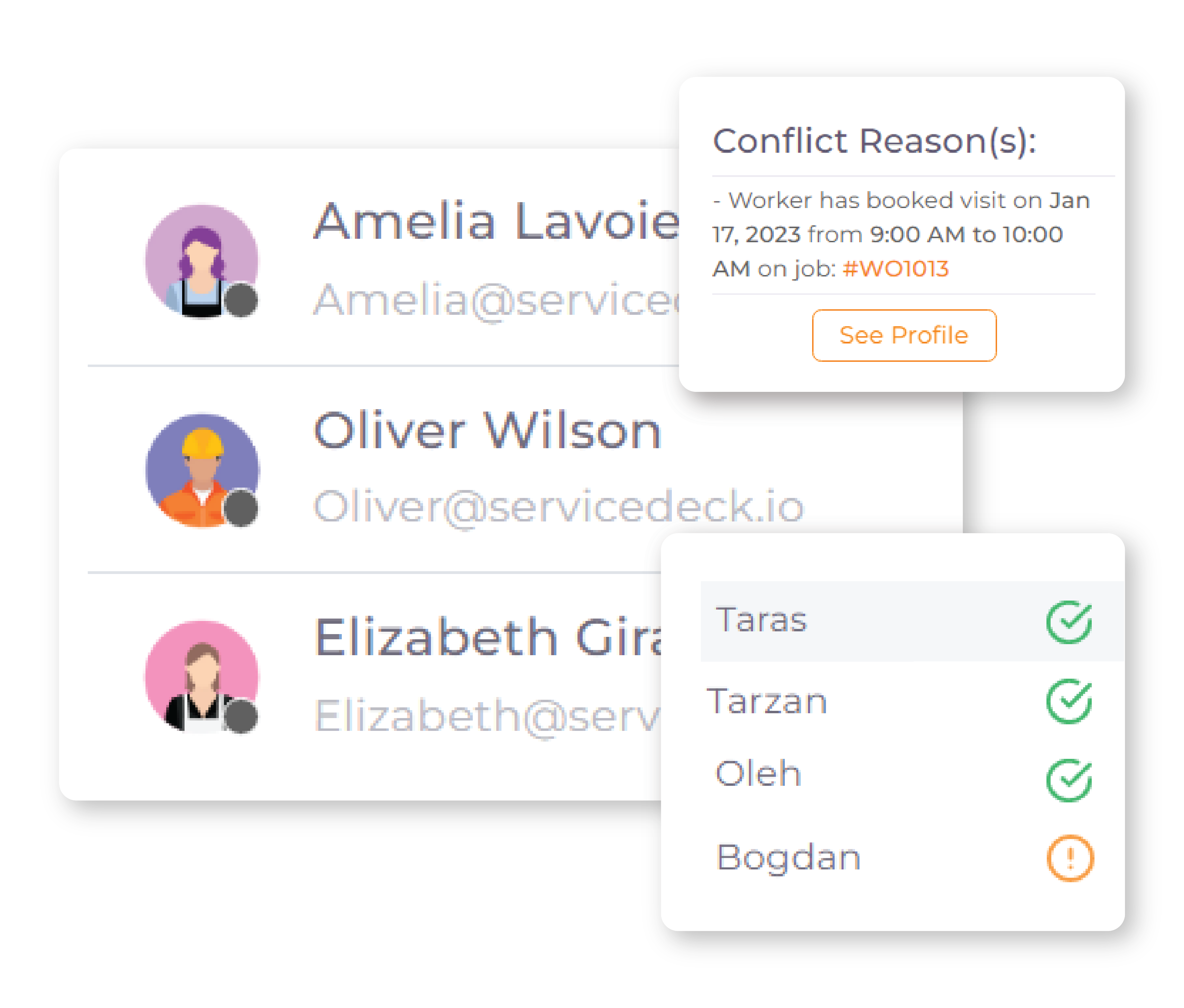Efficient scheduling and dispatching are critical components of successful field service management, as they directly impact productivity, customer satisfaction, and overall profitability. Optimized dispatching ensures that resources are allocated effectively, reducing delays, and enhancing service quality. This article dives into the best practices for streamlining scheduling and dispatching processes, with a focus on field service dispatching and the use of scheduling software.
Implementing a Centralized Scheduling System

A centralized scheduling system, such as ServiceDeck, offers numerous benefits for field service companies, including improved visibility into resource allocation, reduced scheduling conflicts, and enhanced communication between dispatchers, technicians, and customers. By consolidating scheduling information into a single platform, businesses can minimize errors and maximize efficiency.
When selecting scheduling software, consider the following key features:
- Ease of use and customization to suit your specific industry needs
- Integration with existing field service management software and systems
- Real-time updates and mobile access for technicians in the field
- Reporting and analytics capabilities for performance monitoring and optimization
Leveraging Automation and AI for Improved Scheduling
Automation plays a significant role in streamlining scheduling and dispatching processes, as it minimizes manual tasks and reduces the likelihood of errors. By automating routine tasks such as appointment scheduling, route planning, and resource allocation, dispatchers can focus on higher-value activities and address complex scheduling challenges.
Artificial intelligence (AI) can further optimize scheduling and dispatching by analyzing data patterns and technician performance, providing insights into the most effective resource allocation and route planning strategies. By embracing technology and adopting data-driven decision-making processes, field service companies can enhance efficiency and deliver exceptional service to their customers.
Prioritizing Technician Skills and Availability

When scheduling and dispatching technicians, it’s essential to consider their expertise and availability. Allocating jobs based on technician skill sets ensures that each task is completed efficiently and accurately, minimizing the need for return visits or additional support. Balancing workload and ensuring adequate coverage is also crucial to prevent technician burnout and maintain consistent service quality.
Fostering technician specialization can further improve efficiency, as specialized technicians are more likely to complete tasks quickly and accurately. Encouraging ongoing training and development can help technicians develop expertise in specific areas, ultimately benefiting both the technician and the company.
Enhancing Communication and Collaboration
Effective communication and collaboration are essential for streamlining scheduling and dispatching processes. By encouraging open communication between dispatchers, technicians, and customers, companies can address scheduling challenges more effectively and ensure that all parties are informed and up-to-date.
Mobile apps and real-time notifications can facilitate seamless communication, providing technicians with instant access to scheduling information and enabling dispatchers to send updates or changes as needed. As an example, ServiceDeck allows technicians to provide status updates from the field, ensuring that dispatchers and customers are informed of any delays or issues that may impact service delivery.
Proactively Managing Emergencies and Last-Minute Changes
Unexpected changes and emergencies are an inevitable part of field service operations, and companies must be prepared to handle them effectively. Implementing flexible scheduling strategies can help businesses adapt to last-minute changes and emergencies, minimizing disruption and maintaining customer satisfaction.
When faced with unexpected scheduling challenges, it’s important to provide timely updates to customers and ensure that they are informed of any changes to their service appointments. Open communication and proactive management can help preserve customer trust and satisfaction, even in challenging situations.
Continuously Monitoring and Analyzing Scheduling Performance
To optimize field service dispatching processes, it’s essential to continuously monitor and analyze scheduling performance. Tracking key performance indicators (KPIs), such as technician utilization rates, first-time fix rates, and customer satisfaction scores, can provide valuable insights into the effectiveness of scheduling and dispatching strategies.
Utilizing analytics tools within scheduling software can help companies identify trends, inefficiencies, and areas for improvement, enabling them to make data-driven decisions and refine their scheduling processes. Regularly reviewing performance metrics and soliciting feedback from technicians and customers can also help businesses identify opportunities for improvement and adapt their scheduling strategies accordingly.
Adapting scheduling strategies based on insights and feedback is crucial for continuous improvement and long-term success in streamlining scheduling and dispatching processes.
Final thoughts
Implementing best practices for optimizing field service dispatching with ServiceDeck can significantly enhance efficiency, customer satisfaction, and profitability. By adopting a centralized scheduling system, leveraging automation and AI, prioritizing technician skills and availability, enhancing communication and collaboration, proactively managing emergencies and last-minute changes, and continuously monitoring and analyzing scheduling performance, field service companies can streamline their scheduling processes and deliver exceptional service to their customers.
Investing in scheduling software that supports these best practices and integrates seamlessly with existing field service management systems, such as ServiceDeck, can further improve operations and drive business growth. As the field service industry continues to evolve, embracing technology and adopting data-driven scheduling strategies will be essential for companies looking to stay competitive and deliver top-notch service.


3 Comments